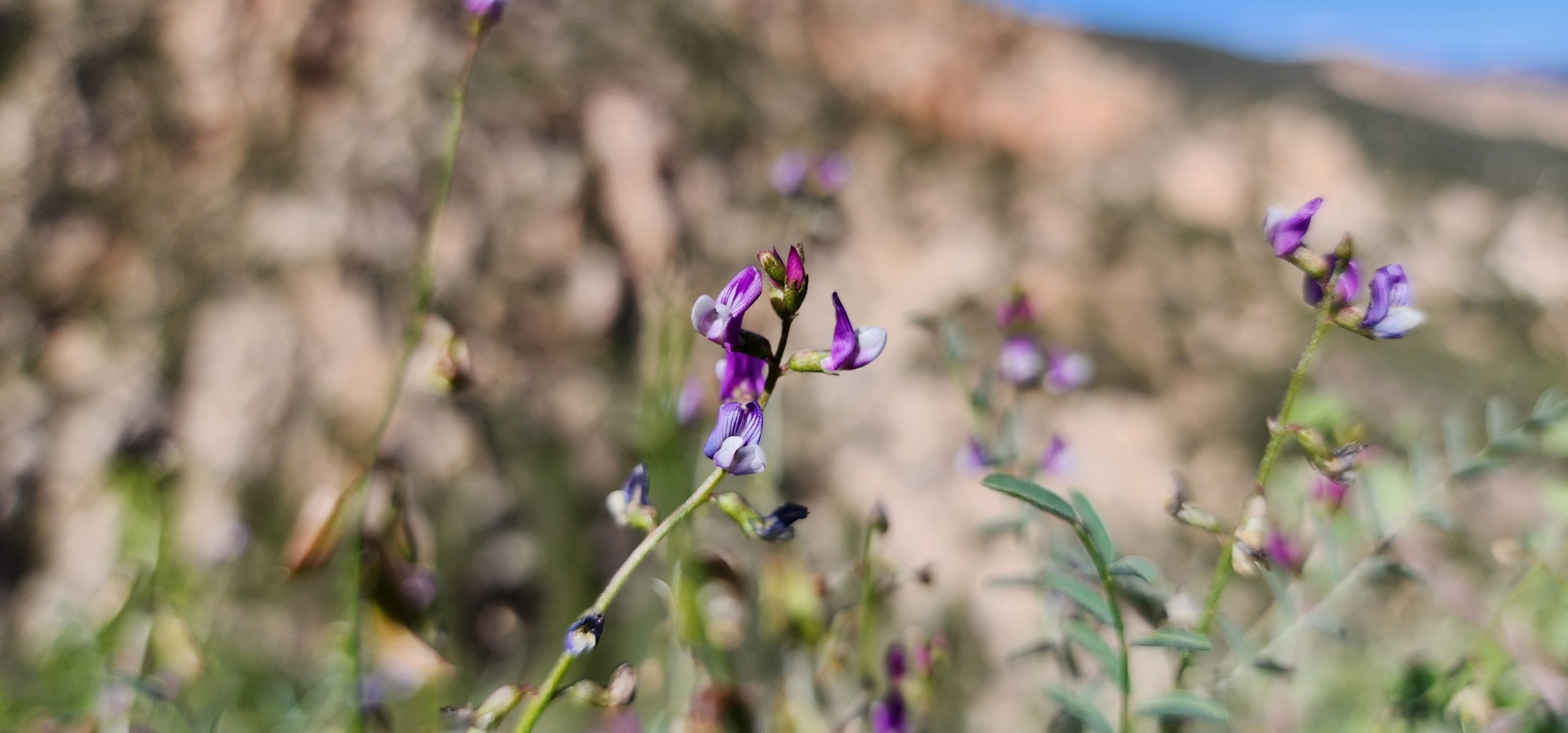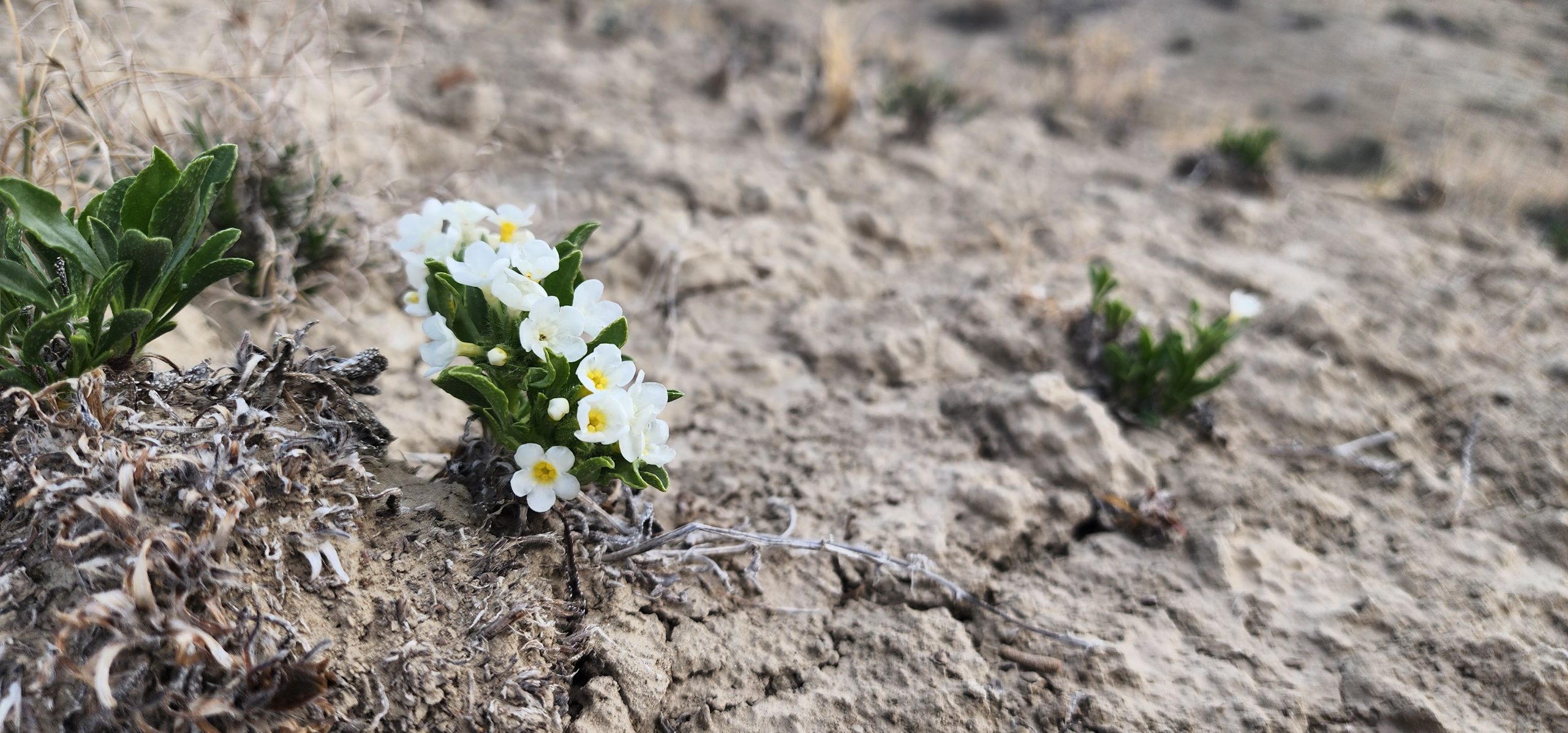Save Plants
Center for Plant Conservation
As we approach the end of another amazing year in conservation, we wish to reflect on some of the many accomplishments CPC has achieved alongside our partners and colleagues in 2023. Throughout the past year, more than 250 rare plant species were added to the CPC National Collection—several of which are highlighted in this issue. This crucial conservation action safeguards rare plant species from extinction, preserves their genetic diversity, and supports future conservation actions to conserve species such as reintroductions back into the wild. CPC also continues to grow our network of Conservation Partners with the recent addition of the National Park Service as a Network Partner. We are very thankful for their commitment to preserving plant life and biodiversity in our many national parks.
Our small but mighty team continues to expand the Rare Plant Academy’s robust educational resources with the launch of the first module of the Applied Plant Conservation Course in May of this year. This free online course showcases the expertise of conservation practitioners throughout our network to provide professional training for those working in the field of plant conservation. We are also preparing for our milestone 40thanniversary year with celebrations at our annual National Meeting in May, hosted by our fabulous partner, the San Diego Zoo Wildlife Alliance. Save the date now! And don’t forget to share the news of the Catherine H. Beattie Fellowship with emerging conservationists within your own networks.
But most of all, we want to thank you for the consistent and generous support of the many initiatives that CPC and our partners led this year. Because of your support and commitment to science-based plant conservation, we can continue making meaningful strides to fulfill our mission. Our Board of Trustees, staff, conservation partners, and donors make up a powerful conservation community. Together, we truly save plants!
We wish you a safe holiday season filled with love, family, friendship, nature, and hope.
All the best,
The CPC Team
Growing the National Collection
We are proud to report a remarkable growth of the CPC National Collection this year, due to an enduring commitment to conservation throughout our network of Conservation Partners. With 254 new species secured in collection in 2023, CPC Participating Institutions now collectively possess an impressive total of 2,605 North American rare plant species stored safely in ex-situ conservation collections. This brings the CPC network over 59% of the way towards our goal of securing all 4,400 rare and endangered North American plant taxa in ex-situ conservation collections! These new additions represent collections from 19 different Participating Institutions, with species spanning 18 states and territories. Our growing partnerships allow us to prioritize and target species as a collective, achieving far more for rare plants together than would be possible alone.
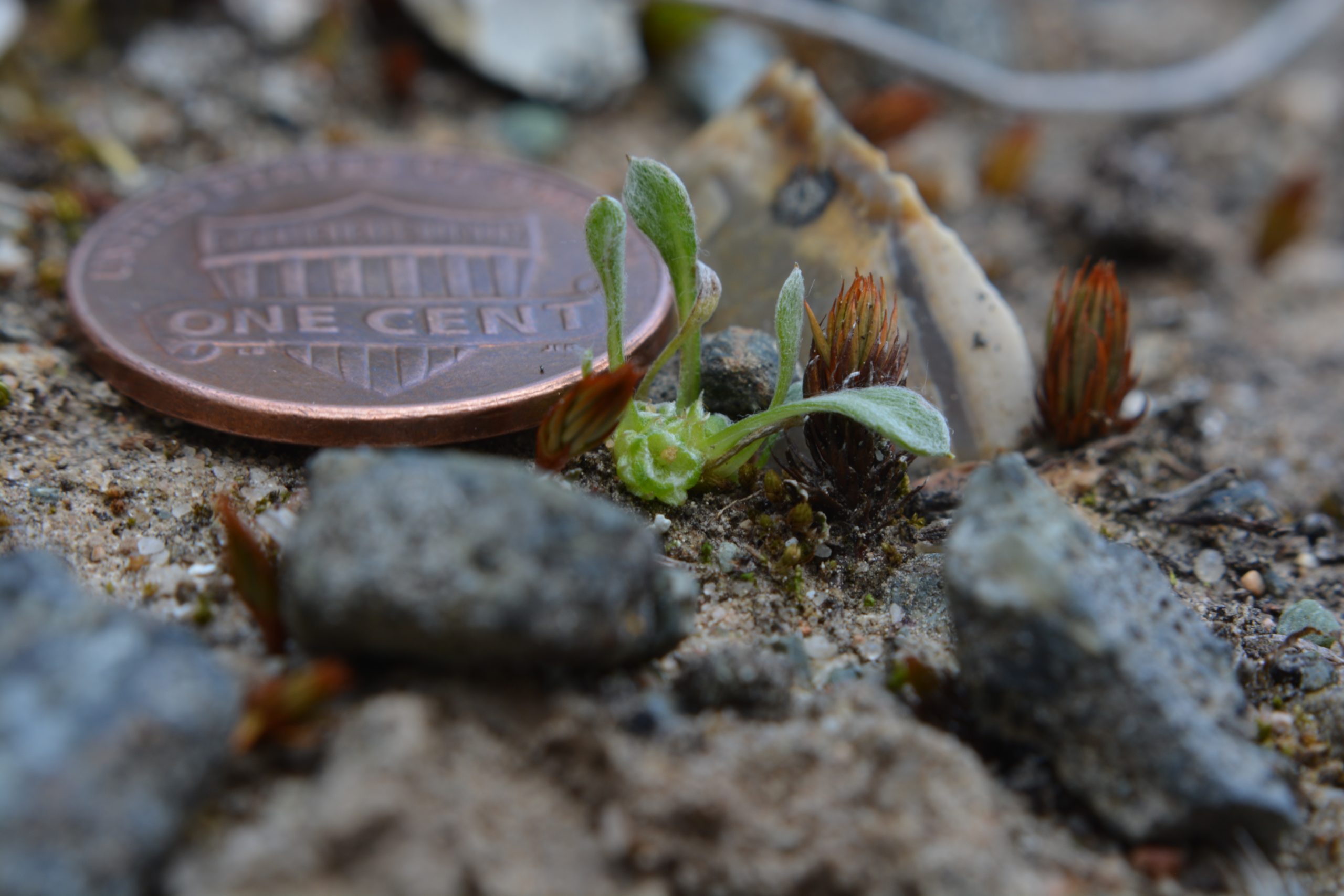
Santa Ynez Groundstar (Ancistrocarphus keilii)
Santa Ynez Groundstar is a critically imperiled species known only from Santa Barbara County, California. For 30 years, no individuals of this diminutive species were observed or documented. In 2023, a collaborative group of botanists from Santa Barbara Botanic Garden and California Native Plant Society conducted a successful expedition to survey the last documented occurrence of this plant. The scientists collected new voucher specimens, completed conservation seed banking, acquired the first-ever photos of this plant in living condition, and collected detailed data about the status of the population and its habitat. Seed collection of Santa Ynez Groundstar was funded by the California Plant Rescue initiative in 2023, and this species is now held in the CPC National Collection at Santa Barbara Botanic Garden.
Peck’s Milkvetch (Astragalus peckii)
Peck’s Milkvetch is a vulnerable species endemic to central Oregon, where it grows along the Cascade Mountain Range. This species, one of many named in honor of renowned Oregon botanist Morton E. Peck, is listed as Threatened by the state of Oregon. According to the Oregon Department of Agriculture, it is threatened primarily by off-road vehicles, invasive weed encroachment, and urbanization. Peck’s Milkvetch is held in the CPC National Collection at Rae Selling Berry Seed Bank, where over 16,000 seeds from 163 maternal plants, representing 7 wild populations, are safeguarded. Astragalus peckii was sponsored as part of CPC’s 40th Anniversary Campaign, helping to fund conservation efforts for this rare plant at Rae Selling Berry Seed Bank.

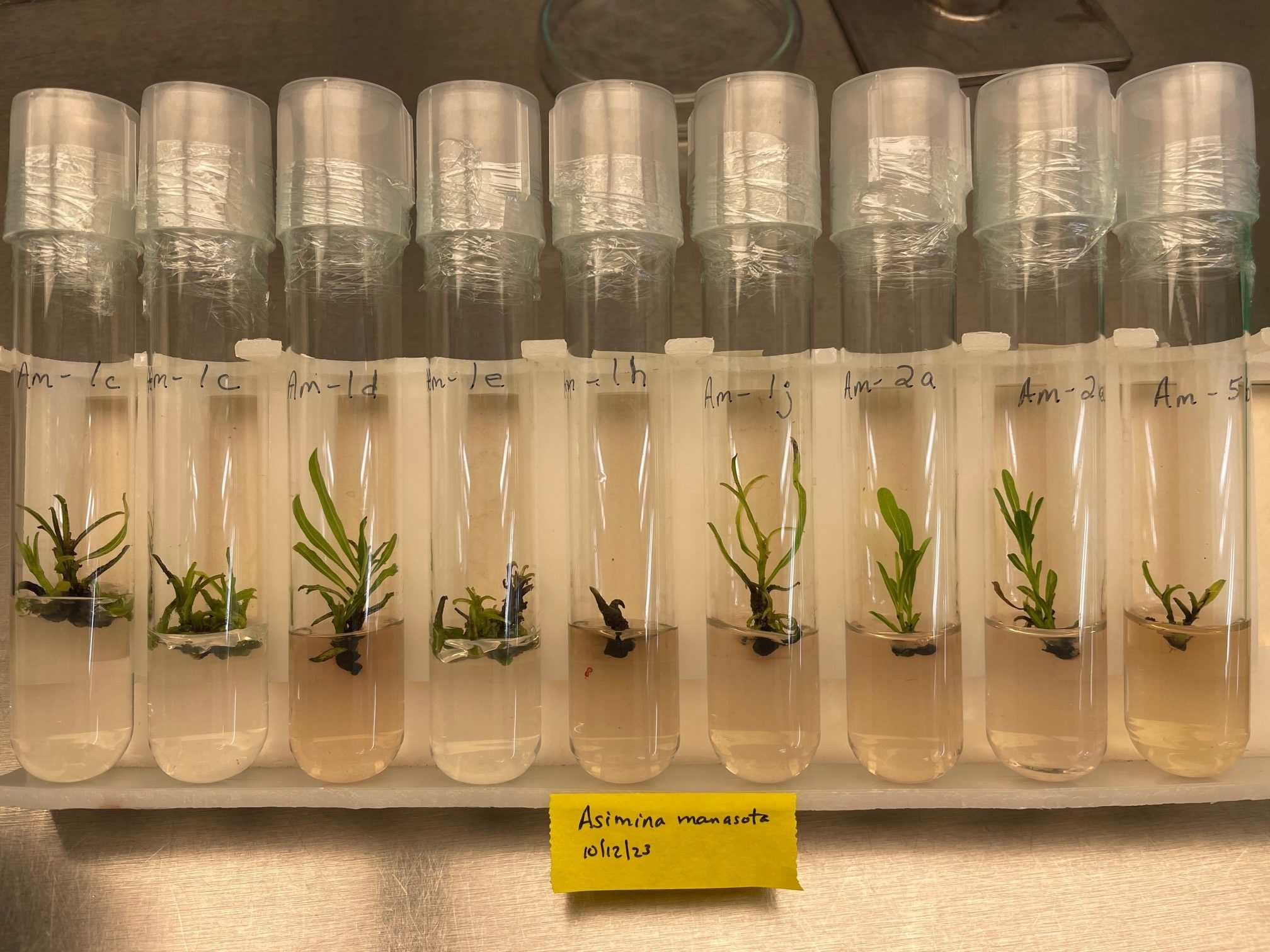
Manasota Pawpaw (Asimina manasota)
Manasota Pawpaw is a critically imperiled species endemic to Manatee and Sarasota Counties in southern Florida. Since it is an exceptional species whose seeds cannot be stored using traditional methods, techniques such as tissue cryopreservation must be employed to conserve Manasota Pawpaw in long-term storage. As part of the Florida Plant Rescue (FLPR) initiative in 2023, this species was targeted in an exceptional species project and brought into the CPC National Collection at Marie Selby Botanical Gardens and the Cincinnati Zoo and Botanical Garden Center for Conservation and Research of Endangered Wildlife (CREW). With funding from FLPR, Selby Gardens collected immature shoot tissue from the wild to use in tissue culture and cryopreservation. Selby Gardens also partnered with CREW to cryopreserve A. manasota, and CREW staff have since successfully grown three germplasm lines in vitro from A. manasota collections made in 2023.
Launching the Applied Plant Conservation Course
Since 2021, CPC has been developing a brand-new educational resource for the Rare Plant Academy (RPA)—the Applied Plant Conservation Course. This online professional development course is free-of-charge and will serve to train our current and future botanical workforce in the best practices of rare plant stewardship and conservation. Participants will learn from leading experts in the field of plant conservation through dynamic video lectures, animated lessons, knowledge checks, and integrated RPA resources. Topics range from rare plant genetics and reintroductions to seed collections, exceptional species, and more.
CPC was pleased to announce the launch of the first module of the course, Introduction to Rare Plant Conservation, at our National Meeting at Desert Botanical Garden in May 2023. In this module, participants will explore topics including Why We Conserve Rare Plants, The Nature of Plant Rarity, Rare Plant Resources and Conservation Ranks, Rare Plant Ecology, and Rare Plants on Public Lands.
Taught by several of CPC’s Conservation Partners—including the Institute for Applied Ecology, NatureServe, and the California Native Plant Society, and more—this module introduces fundamental plant conservation concepts that underpin our network’s collective mission to save plants from extinction and serves as an informative primer for conservation minded-individuals, plant enthusiasts, and practitioners who are newer to the plant conservation field.
Additional modules of the Applied Plant Conservation Course will launch in 2024, bringing the Best Practices Guidelines to life as an educational tool for those working with rare and native plants at any stage of their career.
We invite you to watch the first lesson of the course featured here and taught by Dr. Tom Kaye, Executive Director & Senior Ecologist of the Institute for Applied Ecology, and to learn more and enroll in the Applied Plant Conservation Course.
Partial funding for course modules has been generously provided by the Bureau of Land Management offices of California, Colorado, & Nevada.
Welcome to CPC: New Network Partner
The Center for Plant Conservation (CPC) is thrilled to welcome the National Park Service to our network of Conservation Partners. Now 75 members strong, the CPC network brings together plant conservationists from world-class institutions across the globe and is grounded in the spirit of collaboration and scientific innovation to save imperiled plants from extinction.
National Park Service
Network Partner | Fort Collins, Colorado
The Landscape Restoration & Adaptation Branch (LRAB) of the Biological Resources Division of the National Park Service (NPS) is based in Fort Collins, Colorado. Its mission is to support landscape restoration and adaptation by providing the policy, tools, and technical assistance necessary for national parks to restore disrupted ecological processes and degraded landscapes, improving ecosystem response. LRAB helps over 400 national park units to conserve and preserve resources and restore and maintain healthy ecosystems by caring for the plants, animals, and landscapes within their boundaries. Throughout any given year, NPS plans and implements hundreds of plant conservation actions, including surveying, monitoring, seed collection, propagation, and restoration. In partnership with CPC and its network of botanical institutions, NPS aspires to streamline the process for conducting rare plant conservation actions on its lands to better ensure the survival of these imperiled species.
Catherine H. Beattie Fellowship
Each year, The Garden Club of America (GCA) and the Center for Plant Conservation together award the Catherine H. Beattie Fellowship to graduate students in biology, horticulture, or a related field. The purpose of the award is “to promote conservation of rare and endangered flora in the United States, with preference given to students whose projects focus on the endangered flora of the Carolinas and southeastern United States.” The fellowship was established to honor Catherine H. Beattie, who served as a director and board member of the GCA and as president from 1981 to 1983.
The fellowship provides one annual research grant of up to $4,500. The grant is regarded as compensation for work at a botanical garden by the student, who jointly serves the program of the Center for Plant Conservation and their curricular studies.
We are now accepting applications for 2024 fellowships. Please visit CPC’s website for more information about the Beattie Fellowship and detailed application instructions. Applications are due January 31, 2024. Learn more and apply.
________________________________________________________
Meet the 2023 Beattie Fellows
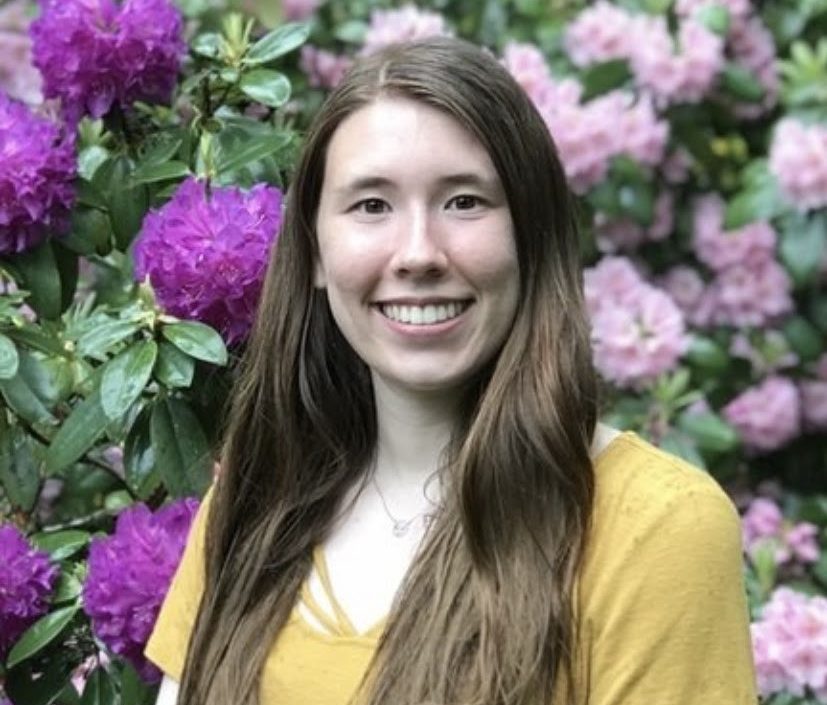
Madeline Bednar, Miami University
Project: “Conservation Genetics of Sarracenia rubra ssp. gulfensis, a Petitioned Pitcher Plant of the Florida Panhandle.”
Madeline will measure the level and structure of genetic diversity within and among the existing populations of the gulf pitcher plant by sampling across the full range of its native distribution, measuring the prevalence of clonality within populations, and providing an estimate of plant abundance during survey periods. Results from the study will aid the status assessment of the pitcher plant by US Fish and Wildlife Service and will identify necessary conservation efforts.
Erin Eichenberger, North Carolina State University
Project: “Investigating the Population Vital Rates and Pollinators of the Rare Southeastern Perennial Echinacea laevigata to Improve Management Recommendations.”
Erin will conduct demographic and floral visitor surveys of the smooth purple coneflower, a federally listed threatened species, to support ongoing conservation efforts. In collaboration with North Carolina State University, North Carolina Botanical Garden, and NC Plant Conservation Program, Erin will investigate the influence of canopy closure on growth and
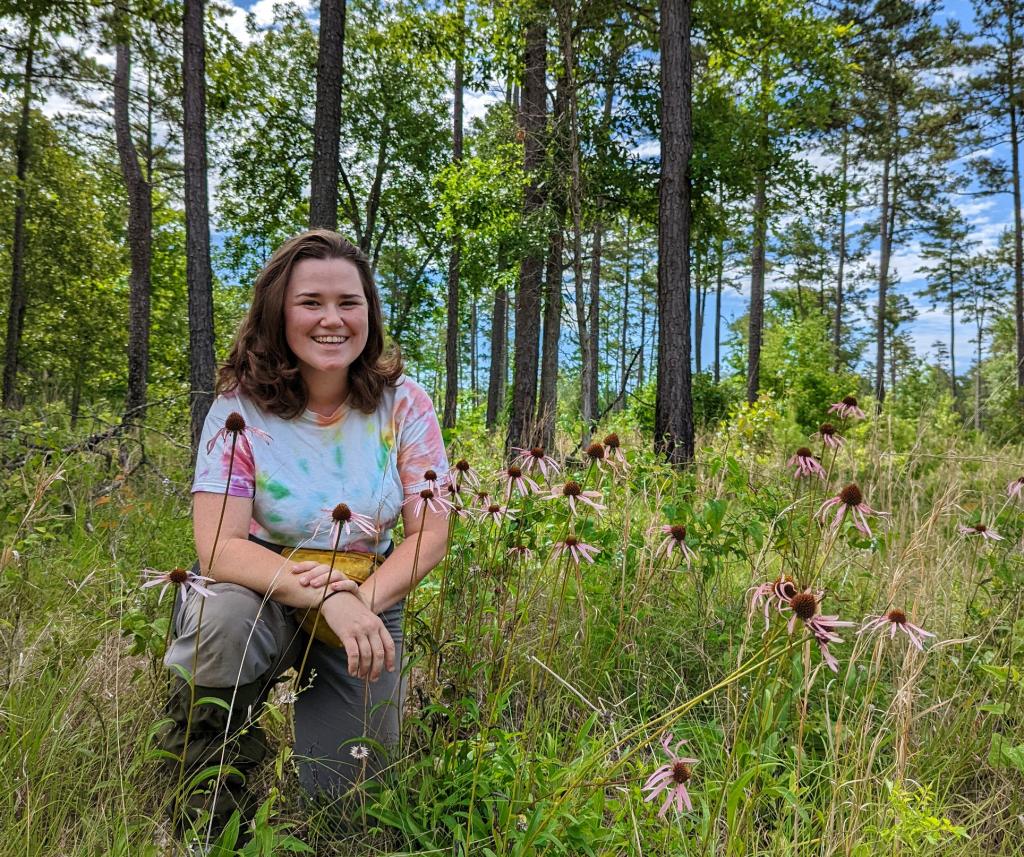
Save the Date: 2024 National Meeting
The Center for Plant Conservation is thrilled to host the 2024 National Meeting May 2-3, 2024 . Sessions will take place at both the San Diego Zoo and Safari Park, in collaboration with the San Diego Zoo Wildlife Alliance—a CPC Participating Institution and the host institution for CPC’s National Office headquarters.
For 40 years, CPC and its ever-growing network of Conservation Partners have been at the forefront of botanical breakthroughs—pioneering scientific research and techniques, utilizing cutting-edge technologies and methodologies, and innovating solutions and best practices—to advance our shared mission to save rare and endangered plants from extinction. This year’s meeting theme, Conservation Innovation: Harnessing Technology to Advance Rare Plant Conservation, celebrates CPC’s milestone 40th anniversary and our network’s innovative spirit that drives our collective conservation efforts and success stories.
Presentation sessions will include updates from the CPC National Office on network-wide initiatives, plus lightning talks from CPC network partners on plant conservation research, accomplishments and challenges, and future initiatives. We welcome both Institutional and Individual Conservation Partners to submit presentation abstracts centered on this year’s theme of Conservation Innovation: Harnessing Technology to Advance Rare Plant Conservation. We encourage prospective presenters to submit abstract proposals that highlight the use of new or evolving technologies and methodologies in your rare plant conservation projects and research; ways your institution has developed and innovated conservation initiatives both over time and looking to the future; or topics that otherwise adhere to the conference theme.
Abstract proposals can be submitted at the time of registration, which will launch in early 2024.
Learn more about the 2024 National Meeting.
National Collection Spotlight: Tiburon Mariposa Lily
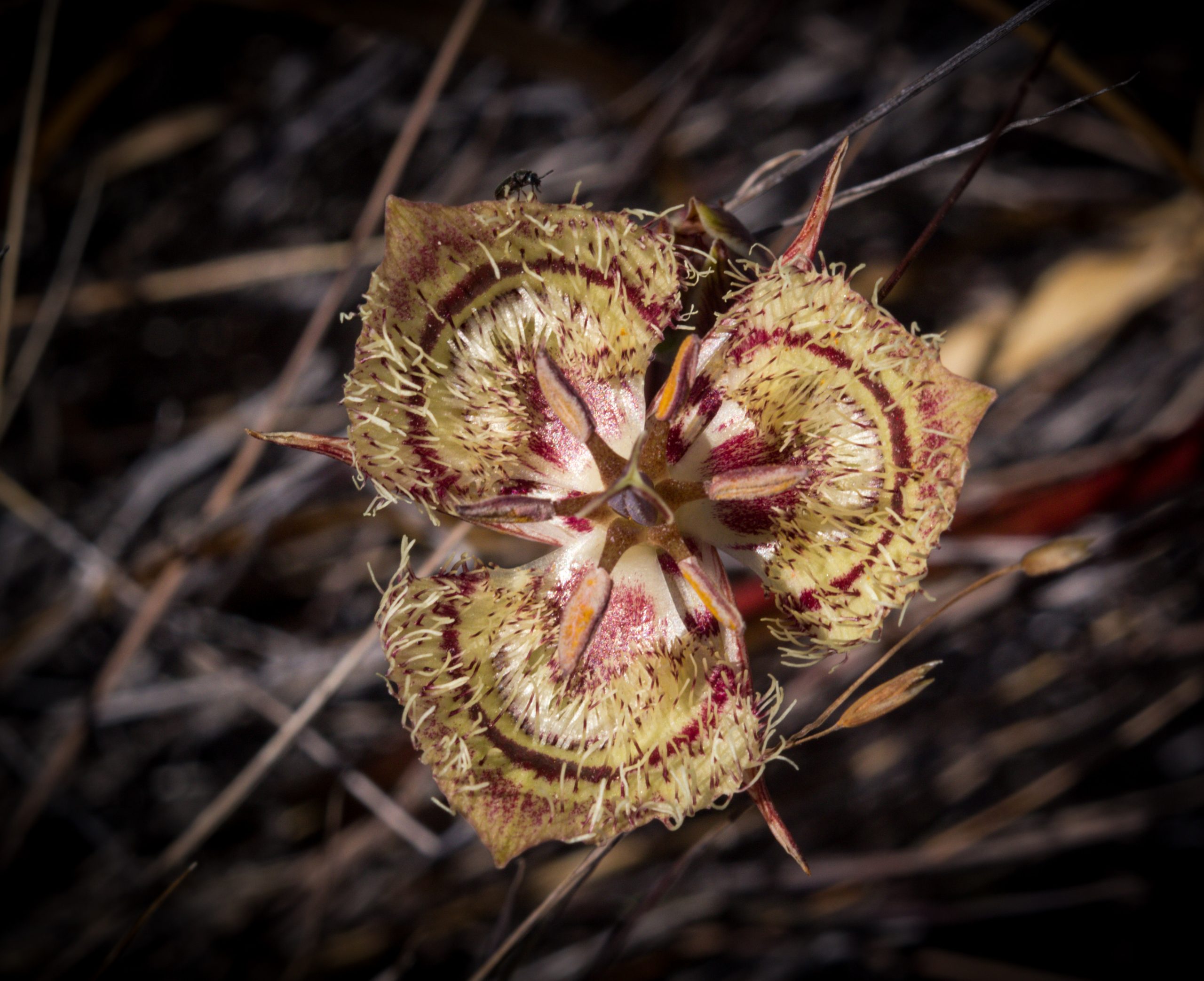
Tiburon Mariposa Lily (Calochortus tiburonensis) is a critically imperiled lily species endemic to a single summit on the Tiburon Peninsula in Marin County, CA. This California endemic lily boasts a striking flower, featuring hairy petals colored light yellow with flecks of dark purple and brown. With only one population known to exist, the Tiburon Mariposa Lily is listed as Threatened under the U.S. Endangered Species Act. Primary threats to this species include recreational activities and the spread of non-native plant species, necessitating consistent monitoring and management for mitigation.
Calochortus tiburonensis is secured in the CPC National Collection at the University of California Botanical Garden at Berkeley (UCBG). In 2018, UCBG collected seed from the only known population of this species within the Ring Mountain Preserve on the Tiburon Peninsula. This accession, representing over 130 maternal lines, is held in the UCBG seed bank in orthodox storage.
We encourage you to learn more about conservation actions taken for Tiburon Mariposa Lily on its National Collection Plant Profile and help support critical conservation work with a Plant Sponsorship. In celebration of our 40 years of saving plants from extinction, CPC’s 40th Anniversary Campaign is raising funds to sponsor 40 National Collection species, including Tiburon Mariposa Lily. For every $5K raised per plant species, our Board of Trustees will provide $5K in matching funds to bring the species to the full sponsorship level of $10K–doubling the impact of your gift in support of rare and endangered plants!
As Seen on CPC’s Rare Plant Academy: Photo Posting Tool
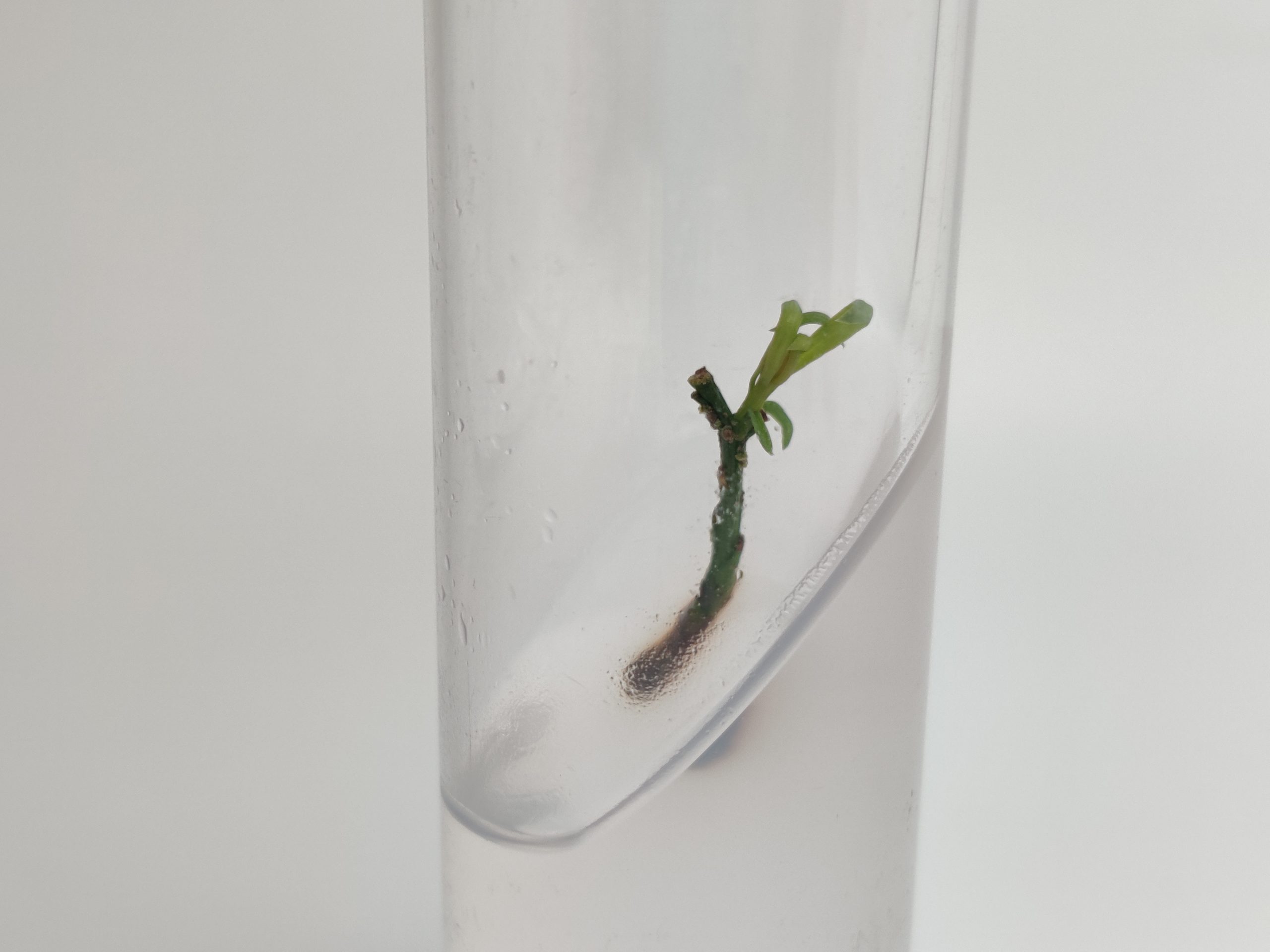
Have you used the photo posting tool on the Rare Plant Academy? Adding photos to the Plant Profiles in our National Collection gives rare plants more visibility by putting a face to a name and adding a touch of personality! The scientific community and the public find it easier to engage with these special plants when we provide windows to view their beautiful, quirky, and intriguing features—and the increased attention and appreciation can generate support for critical conservation efforts in the form of Plant Sponsorships. When people are motivated to Save Plants, we all win!
It’s easy to post photos to our website. Our Institutional and Individual Conservation Partners can do this from the Rare Plant Academy Photo Gallery or directly from their user dashboard. Include a caption to share species, location, and who took the picture. With thousands of species in our National Collection, your photos can help these rare plants get seen!
Get Updates
Get the latest news and conservation highlights from the CPC network by signing up for our newsletters.
Sign Up Today!Ways to Help CPC

Conservation Advocacy Initiatives
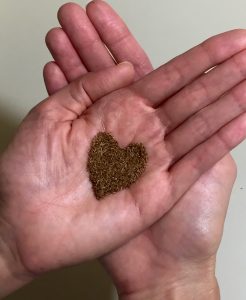
Advocacy is an important tool at our disposal to use in saving rare and endangered plants. As conservationists, botanists, plant enthusiasts, and humans on Earth, we must all use our voices to advocate for plants. Just as we need plants, they also need us to ensure their continued survival and conservation.
What can you do to be an advocate for rare plants? Stay informed and reach out to your representatives! The Center for Plant Conservation tracks federal legislation with direct impact on the safeguarding of rare and endangered plants, plant conservation research, and restoration. Visit our Advocacy page (saveplants.org/advocacy) to learn more about current legislation in the #PlantConservation world
Photo credit: Though ranging from shrub to tree and reaching up to 80-feet tall, the seeds of the ‘Ōhi‘a tree are small enough that 10,000 easily fit in the palm of your hand. Photo credit: Marian Chau, courtesy of the Lyon Arboretum.

Donate to Save Endangered Plants
Without plants, life as we know it would not be possible. Yet two in five of the world’s plants are at risk of extinction. More than ever before, rare plants need our help!
That is why all of us at the Center for Plant Conservation (CPC) are deeply grateful to have you as part of our conservation community. Your generous and unyielding support allows CPC and our network of world-class botanical institutions to make great strides in our shared mission to Save Plants from extinction.
Your gift ensures CPC’s meaningful conservation work will continue. Together, we save more plants than would ever be possible alone—ensuring that both plants and people thrive for generations to come. We are very thankful to for all that you do to help us Save Plants!
Make a gift by December 31, 2023 – your donation is fully tax-deductible!
Donate to CPC
Thank you for helping us save plant species facing extinction by making your gift to CPC through our secure donation portal!
Donate Today